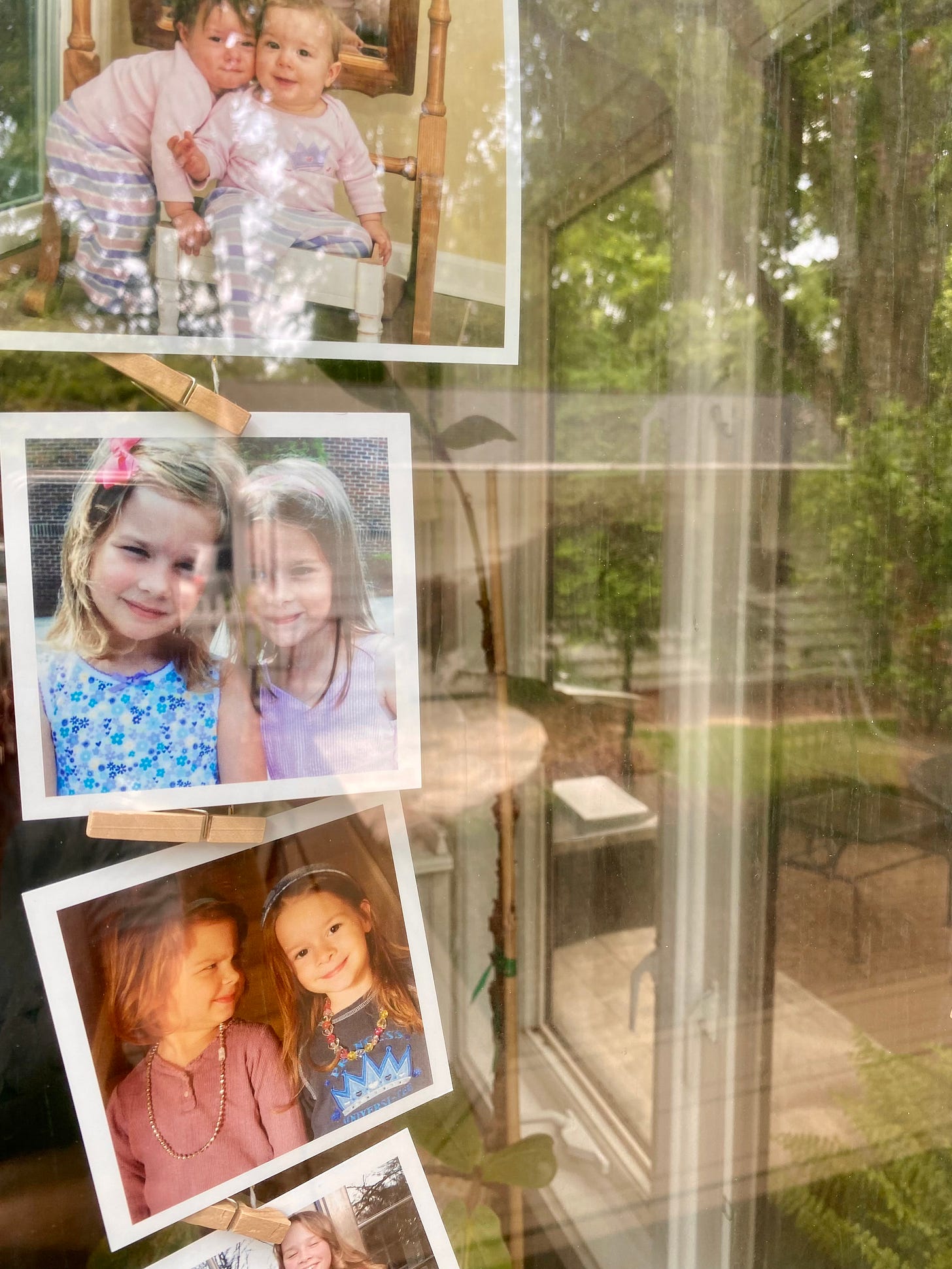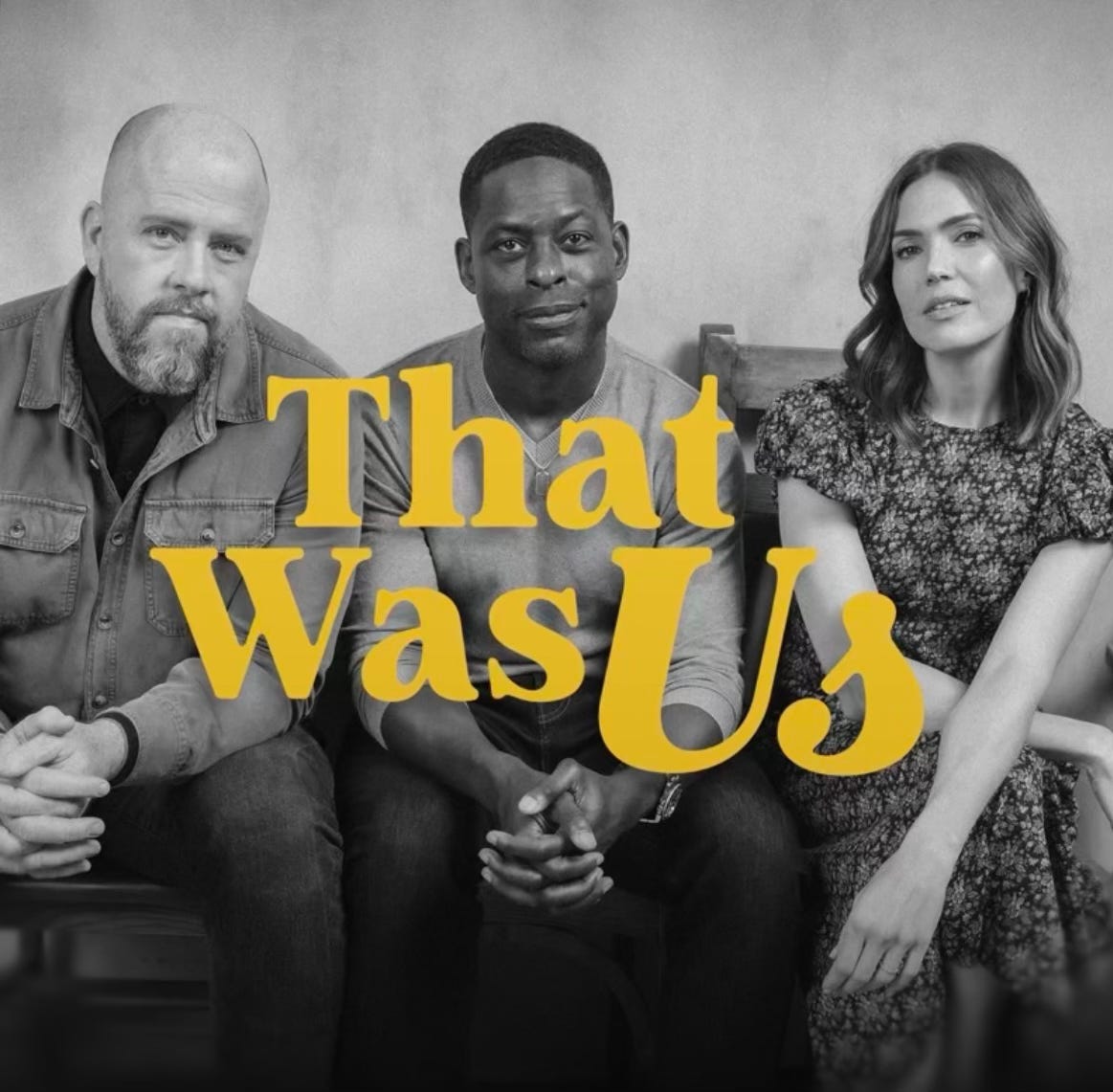That Was Us
And so is this.
Kendra and I sometimes joke about the reality that, even on our very best days, no matter how good things are or how settled we may feel, she’s always going to be a little bit angry and I’m always going to feel a little bit sad. We laugh when we say it while still holding respect for our personalities. It’s not a bug, it’s a feature. (Most of the time.)
I realize this always-a-little-bit-sad business sounds terrible. (I also realize you most likely know exactly what I mean.) But there are gifts here, too. Being familiar with sadness means it doesn’t scare me when it shows up so I have a lot of capacity, not only for my own sadness, but for yours too. It doesn’t make me squirmy, I don’t feel compelled to fill silent sad space with a lot of words, and I don’t have a compulsion to fix it (or you, thanks be to God.)
With all of this in mind, when I saw that several of the cast members from This Is Us were hosting a re-watch podcast, I had to check it out. This was the show I (and so many) watched to get my weekly tear quota out if real life was too difficult to allow access. I was curious about how they would talk through the show, if they would share behind the scenes (they do!), and how I would relate to the storylines now that it’s been a few years since it ended.
In the podcast episodes that have aired so far, these cast members share how they each got their perspective parts and some things going on behind the scenes as well as the audience response to their show. One response they heard (and still hear) over and over again is that the show is sad, maybe even too sad. To that, Chris Sullivan (the actor who plays Toby) would respond as follows:
“It was a joke I used to make, but I also mean it seriously. People used to say that the show is sad, and I used to say,
‘The show’s not sad. You’re sad. Life is sad.’”
—Chris Sullivan
The show only made us feel things because we saw, played out on the screen, scenes that were familiar to our own lives. That’s the thing about the specificity of art: when we see people go through grief, anxiety, heartbreak, reconciliation, vocational questions, regret, and relational conflict we relate even when they’re acting.
A thing can be true even when it’s not fact.
The best art reflects truth back to us, reflects us back to us. It doesn’t have to be a mirror image for it to be familiar. So if we’re sad while watching it? It’s because—somewhere on some level—we were sad before we even turned it on. Their story simply, generously, provided a doorway through which our own grief could be released.
Here’s how that has looked for me.




